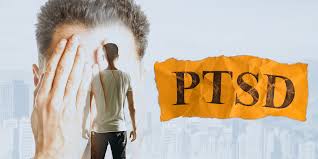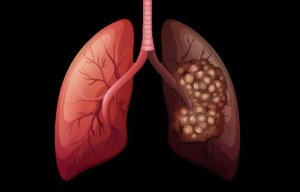Think of the last time you were excited to speak — in a meeting, in class, or among friends — and you jumped in confidently. Now imagine that when you open your mouth, the first word refuses to come out. You know exactly what you want to say — but your speech gets stuck. People stare. Someone laughs. Someone completes the sentence for you. Someone says “Relax, talk.” That tiny pause suddenly feels enormous.
For millions of people around the world, this is the same kind of invisible pressure that people living with Post-Traumatic Stress Disorder (PTSD) feel daily — not because they lack the ability to move forward, but because their body still thinks the past is happening in the present. PTSD isn’t always loud. It isn’t always visible. It isn’t always the crying breakdowns movies show. Sometimes it is a quiet, well-dressed adult in a boardroom who startles at a sound no one else notices. Sometimes it is a mother who hasn’t slept through the night in five years. Sometimes it is a man laughing with friends while his hands tremble under the table. Life continues — but their nervous system is still living inside an old memory that never turns off.
What Actually Causes PTSD?
PTSD begins after an overwhelming experience that the brain was unable to fully process. Common triggers include:
• War, kidnapping, terrorism or violent attack
• Sexual assault or domestic abuse
• Car accidents or near-death events
• Birth or surgical trauma
• Sudden bereavement or witnessing harm
• Natural disasters
• Long-term emotional abuse or fear environments
Not everyone who experiences trauma develops PTSD; those who do are not weak — their nervous system simply did not reset.

Common Symptoms People Miss or Misjudge
PTSD does not look the same in everyone. It may show up as:
• Avoidance of people, places or reminders of the trauma
• Hyper-alertness and jumpiness at sound or touch
• Intrusive memories or flashbacks without warning
• Nightmares and disrupted sleep
• Emotional numbness or disconnection
• Sudden anger or irritability
• Physical reactions like shaking, sweating or racing heartbeat
Many people with PTSD appear “functional,” but carry these symptoms quietly.
Harmful Myths That Keep People Silent
Myth: PTSD is only for soldiers.
Fact: Anyone can develop PTSD — children, parents, professionals, civilians.
Myth: If someone is not talking about it, they’re fine.
Fact: Silence often means survival, not healing.
Myth: Time heals all wounds.
Fact: Time heals only what is processed; unprocessed trauma repeats.
Myth: Therapy is for the weak.
Fact: Seeking help is strength in motion.
A Global Mental Health Reality
The World Health Organization estimates that over 300 million people live with PTSD-related symptoms globally. Untreated PTSD affects:
• Relationships and family life
• Work performance and concentration
• Sleep, cardiovascular health and immune function
• Risk of further depression or anxiety
PTSD is both biological and psychological — the body stores memory just as much as the mind does.
Can PTSD Be Treated or Managed? Yes.
PTSD is not a permanent sentence. Evidence-based support options include:
• Trauma-focused therapy (CBT, EMDR, exposure therapy, narrative therapy)
• Medication where clinically needed
• Support groups and trauma-informed communities
• Regulation practices (grounding, breathwork, structured routine)
With consistent care, many people recover stability and reclaim quality of life.
Why Access to Care Matters — And Where MetrohealthHMO Fits In
One of the biggest barriers is not the disorder — it is the absence of safe, affordable pathways to care. MetrohealthHMO helps close that gap by:
• Enabling covered access to qualified mental health professionals
• Encouraging early intervention rather than crisis response
• Normalizing mental health support without stigma
• Supporting holistic wellness as a part of healthcare, not a luxury
People living with PTSD don’t just need treatment — they need systems that make seeking help possible without shame or financial burden.
A Human Reminder Before You Scroll Away
You cannot see PTSD by looking at someone. They may smile. They may function. They may appear “fine.” Yet one sound, one image, one memory can collapse the distance between past and present inside their body. The least we owe such people is not pity, but patience — not suspicion, but understanding — not silence, but informed compassion.
Call to Action
MetrohealthHMO is committed to making mental healthcare more accessible and stigma-free. Through our network of licensed professionals and wellness offerings, individuals affected by trauma can access confidential, qualified support without losing dignity or protection. If you or someone you know may be living with symptoms of PTSD, speaking to a mental health provider can be a meaningful first step — and that step does not have to be taken alone.
References: https://www.nhs.uk/mental-health/conditions/post-traumatic-stress-disorder-ptsd/
Need health coverage for your Staff? View our Corporate plans here










